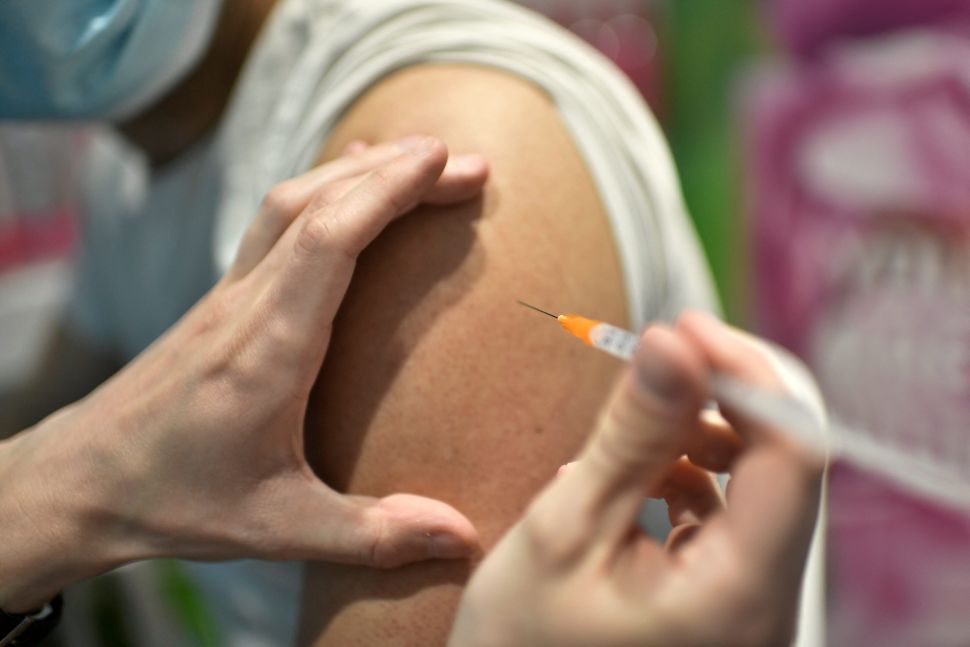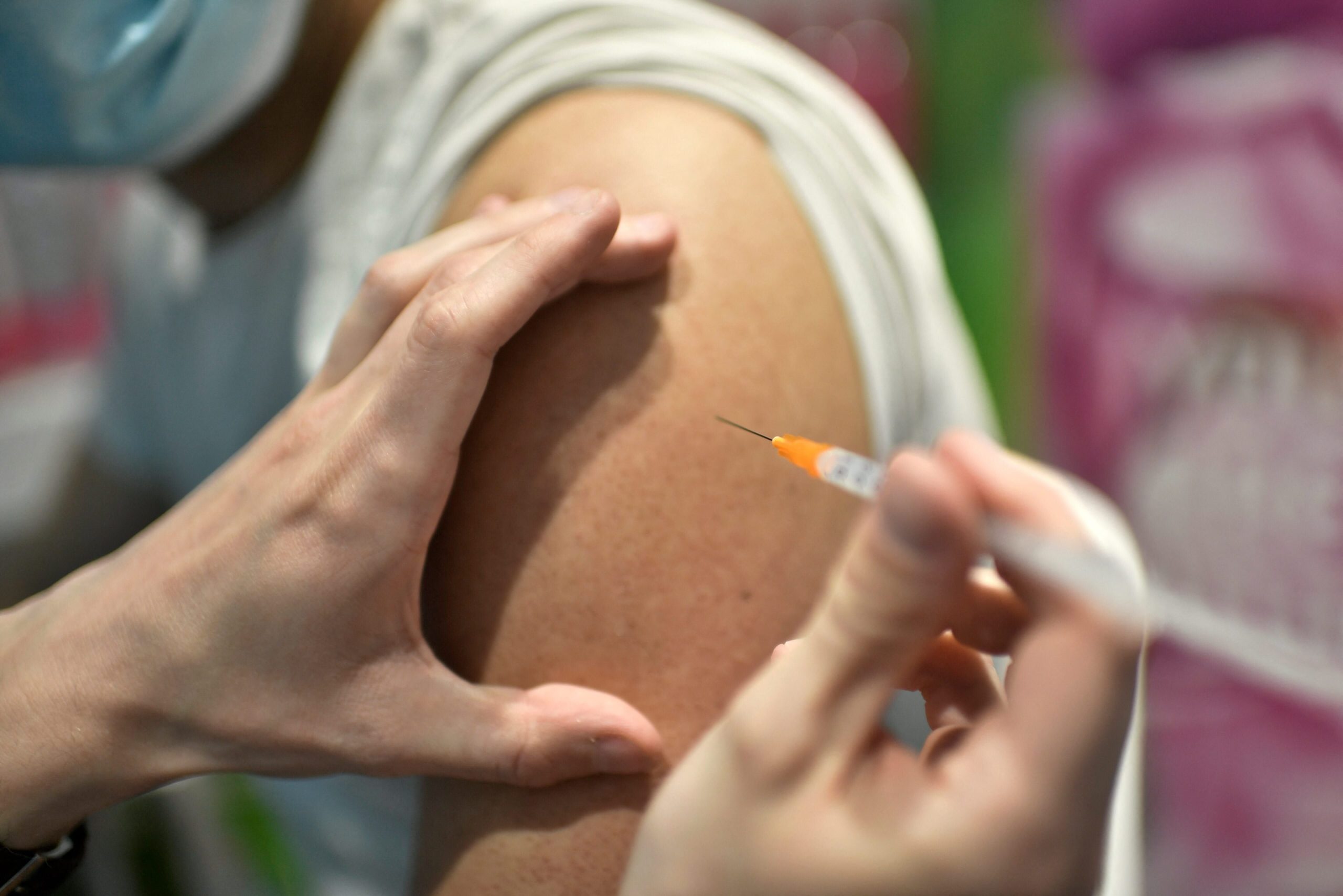
A pharmacist makes an injection of the Moderna COVID-19 vaccine at a pharmacy in Paris, on June, 4, 2021. STEPHANE DE SAKUTIN/AFP through Getty Illustrations or photos
It has been extra than six months due to the fact the initial Fda-approved COVID-19 vaccine was administered in the U.S. Numerous scientists count on coronavirus vaccination to ultimately evolve into an yearly prerequisite like flu pictures. But with harmful viral mutations complicating the ongoing pandemic, we may possibly have to have a booster dose faster than 12 months.
A study pre-print uploaded in medRxiv Thursday suggests a “gradual decline†in efficacy in excess of six months just after two doses of the Pfizer/BioNTech vaccine in extra than 45,000 men and women around the globe.
Efficacy of preventing symptomatic an infection peaked at 96 percent a handful of weeks right after injection and fell an average 6 p.c each individual two months following. At the finish of the six-thirty day period interval, the vaccine was only 84 % helpful.Â
The ongoing study, which has but to be peer-reviewed, demonstrates that the Pfizer/BioNTech vaccine was over-all 91 per cent efficient at preventing COVID-19 an infection above the class of 6 months. Defense towards serious health issues and hospitalization was 97 p.c.
These new conclusions counsel that the Pfizer shot may not be as very long-lasting as researchers beforehand thought. “If the vaccine’s efficacy proceeds to drop at the fee noticed in the paper, it would slide below the 50 per cent threshold—a benchmark for vaccine utility—within 18 months of vaccination,†the wellness information web page STAT estimates.
For comparison, Moderna’s COVID-19 vaccine, which is also mRNA-primarily based, was 90 % successful against symptomatic infection (95 percent successful in opposition to critical scenarios) after 6 months, the business mentioned in April. Johnson & Johnson hasn’t disclosed 6-thirty day period efficacy facts for its single-shot vaccine.
Professionals say the decrease in efficacy observed in the Pfizer research could be in section a result of the onset of the delta variant in the latest weeks—which was not a material issue when Moderna conducted its six-thirty day period efficacy study.
“Either the vaccine’s efficacy in opposition to moderate condition is decreasing somewhat, or the emergence of new viral variants designed it appear considerably less successful,†STAT noted, citing Natalie Dean, a biostatistician at Emory College.
The getting could support Pfizer’s case of adding a third booster shot to its current vaccine. (It would demand amending the Food and drug administration unexpected emergency use authorization or the vaccine gaining whole approval.)
A number of studies released final 7 days located that approved COVID-19 vaccines have been fewer productive towards the delta variant than earlier strains of the coronavirus.
The very good information is, new information from Pfizer display that a third booster dose will increase neutralizing antibody amounts from the delta variant by a lot more than 5 instances, when compared to concentrations right after a next dose, in people ages 18 to 55 yrs outdated, the corporation explained in its next-quarter earnings report Wednesday.
The facts arrived from a modest-scale research of just 11 men and women in the 18-55 age group and 12 individuals more mature than 65. But “these preliminary knowledge are quite encouraging as Delta continues to unfold,†Mikael Dolsten, Pfizer’s main scientific officer reported in the course of an earnings connect with Wednesday. Pfizer explained the info has been submitted for publication in a professional medical journal.

